Christology, Trinitarian theology and Epistemology
One of us
Do you remember that 90’s song ‘what if God was one of us’ by Joan Osborne?
If God had a name what would it be?
And would you call it to his face?
If you were faced with Him in all His glory
What would you ask if you had just one question?
If God had a face what would it look like?
And would you want to see if, seeing meant
That you would have to believe in things like heaven
And in Jesus and the saints, and all the prophets?
I think one of the points of the song is to challenge our preconceptions if we think we would have recognised who Jesus was.
It’s so easy to think that if we had seen the miracles he performed, his sheer goodness and the way he loved the unlovely, and sought out the lost and the hurting, showing them what God is like, that we would have seen who he was and is without any difficulty. That it’d be much easier to have faith back then compared to now, 2,000 years later, reading the gospel accounts of Jesus’ life, death and resurrection.
But the thing that perspective misses, as that song (albeit irreverently) points out, is that Jesus was fully human. (And actually, although I would never think of using the word, I don’t think he would be offended by being called a ‘slob’ if Joan is simply saying he was just like us. He was fully human. And I don’t get the impression that Jesus was thin skinned about the names people had for him. He was interested in only one thing showing the love of the Father.)
The point that I am trying to make is that those who saw Jesus face to face – saw God just like one of us – didn’t have any advantage over us in terms of faith.
Jesus was fully human. As a man, he did not look any different to anyone else. We read in Scripture that there was nothing about his physical appearance or strength that said, ‘this is God’. Those who believed that he was who he said he was had to be willing to see and believe that this man, just like us, was God. I am tempted to say ‘this man, just like us, was also God’ but it’s very important that we neither confuse nor separate the humanity and divinity of Jesus. Theological problems follow if we do. I will get to the incarnation and the importance of orienting everything to this truth because everything floor from Christology. For now I am just noting that I realise how stark (scandalous even) it sounds to say that a historical man – Jesus – is God. It was the stumbling block / offensive claim when Jesus walked amongst us, and it’s the same today. It’s easy to believe Jesus was a good man or (for those not schooled in western rationalism) that Jesus was a mystical divine figure transcendent of history. But the claim that this utterly normal (in respect of his humanity) historical man was God denies those two options. They reduce the awesome reality of Jesus into religion (ie western mere good works teaching or eastern mystical transcendentalism). That Jesus who was born of Mary in Bethlehem, who grew up in Nazareth, and who lived in every respect a fully human life, is God is essential to all of Christianity. From it flows everything – in relation to who God is (Father, Son and Holy Spirit), and all that is made possible through Jesus’ life, death and resurrection.
To see who Jesus is we have to begin with him, not our own expectations of what God is like. In John’s Gospel chapter 8, we read of a confrontation between Jesus and the religious leaders of the day who were starting from their expectations of God rather than with Jesus who is God.
John 8: 25-59
“Who are you?” they asked. “Just what I have been telling you from the beginning,” Jesus replied. 26 “I have much to say in judgment of you. But he who sent me is trustworthy, and what I have heard from him I tell the world.” 27 They did not understand that he was telling them about his Father. 28 So Jesus said, “When you have lifted up [1] the Son of Man, then you will know that I am he and that I do nothing on my own but speak just what the Father has taught me. 29 The one who sent me is with me; he has not left me alone, for I always do what pleases him.” 30 Even as he spoke, many believed in him.
The Truth Shall Make You Free
31 To the Jews who had believed him, Jesus said, “If you hold to my teaching, you are really my disciples. 32 Then you will know the truth, and the truth will set you free.” 33 They answered him, “We are Abraham’s descendants and have never been slaves of anyone. How can you say that we shall be set free?” 34 Jesus replied, “Very truly I tell you, everyone who sins is a slave to sin. 35 Now a slave has no permanent place in the family, but a son belongs to it forever. 36 So if the Son sets you free, you will be free indeed. 37 I know that you are Abraham’s descendants. Yet you are looking for a way to kill me, because you have no room for my word.
38 I am telling you what I have seen in the Father’s presence, and you are doing what you have heard from your father.[2]”
Your Father the Devil
39 “Abraham is our father,” they answered. “If you were Abraham’s children,” said Jesus, “then you would [3] do what Abraham did. 40 As it is, you are looking for a way to kill me, a man who has told you the truth that I heard from God. Abraham did not do such things. 41 You are doing the works of your own father.” “We are not illegitimate children,” they protested. “The only Father we have is God himself.” 42 Jesus said to them, “If God were your Father, you would love me, for I have come here from God. I have not come on my own; God sent me. 43 Why is my language not clear to you? Because you are unable to hear what I say. 44 You belong to your father, the devil, and you want to carry out your father’s desires. He was a murderer from the beginning, not holding to the truth, for there is no truth in him. When he lies, he speaks his native language, for he is a liar and the father of lies. 45 Yet because I tell the truth, you do not believe me!
46 Can any of you prove me guilty of sin? If I am telling the truth, why don’t you believe me? 47 Whoever belongs to God hears what God says. The reason you do not hear is that you do not belong to God.”
Before Abraham Was, I Am
48 The Jews answered him, “Aren’t we right in saying that you are a Samaritan and demon-possessed?” 49 “I am not possessed by a demon,” said Jesus, “but I honor my Father and you dishonor me. 50 I am not seeking glory for myself; but there is one who seeks it, and he is the judge.
51 Very truly I tell you, whoever obeys my word will never see death.” 52 At this they exclaimed, “Now we know that you are demon-possessed! Abraham died and so did the prophets, yet you say that whoever obeys your word will never taste death. 53 Are you greater than our father Abraham? He died, and so did the prophets. Who do you think you are?” 54 Jesus replied, “If I glorify myself, my glory means nothing. My Father, whom you claim as your God, is the one who glorifies me. 55 Though you do not know him, I know him. If I said I did not, I would be a liar like you, but I do know him and obey his word. 56 Your father Abraham rejoiced at the thought of seeing my day; he saw it and was glad.” 57 “You are not yet fifty years old,” they said to him, “and you have seen Abraham!” 58 “Very truly I tell you,” Jesus answered, “before Abraham was born, I am!” 59 At this, they picked up stones to stone him, but Jesus hid himself, slipping away from the temple grounds.
The situation has been building over several chapters. We see the Jews challenging Jesus with the frameworks that they had – Abraham, Moses, the Law, the Prophets. Jesus denies none of these things, but he is trying to help them see that the God of these things is with them now, in person. But the leaders refuse to believe. They find argument after argument.
Jesus asks them a question that should help them. He says, “Can any of you prove me guilty of sin?” (John 8:46) And I imagine there was an uncomfortable silence. So he says, “If I am telling the truth, why don’t you believe me?” Jesus is saying ‘everything points to me being exactly who I say I am. The reason you don’t believe is not what you see. Rather it is that you can’t see beyond your own expectations of what God is like.’ ‘You are unwilling to see and believe.’
Jesus gives them another truth that rocks their world. He says, ‘I tell you the truth, if anyone keeps my word [believes in me, comes to me], he will never see death” (8:51). Jesus is not saying that we will not experience death (as the religious leaders accuse him of by changing the word to “taste”). Jesus is saying that in his death and resurrection, he is going to make a way for us to pass through death to life. This further angers the leaders. The ‘who are you?’ that they begin with becomes the altogether more hostile ‘Who do you think you are?’ (8:53).
As always, Jesus does not seek to justify himself. He says, “If I glorify myself, my glory means nothing.”(8:54) He is content to entrust his glory to the Father. He simply tells the truth in love. He says, “your father Abraham rejoiced at the thought of seeing my day.” (8:56) Abraham’s trust in God was based on what Jesus was going to do on the cross.
But again, the leaders stick to their limited vision of the power and grace of God.
They say, “You are not yet fifty years old… and you have seen Abraham!?” (8;57) And Jesus says, “ I tell you the truth, before Abraham was born, I am!” (8:58) The Jews had no doubt what this meant. God revealed himself to Moses as “I am who I am”. (Exodus 3) Jesus is identifying himself with God. And they pick up stones to stone him for blasphemy. But this is not the moment for Jesus to die. He is going to give his life for us. But, as he says later on, ‘No-one takes it from me, but I lay it down of my own accord.’ (John 10:18) he slips away from them.
Limiting vision
Now this is what I love about this whole exchange with the religious leaders…
These leaders who took offense at Jesus had a big vision of God. – The God of creation, of Abraham and Moses, of the Temple in Jerusalem. And they thought Jesus was insignificant in comparison – that it was scandalous for him to be one with this God.
But actually, their vision was too small. Too limited. They were so determined to only see with what they thought they knew, that they could not see the reality before them.
Their vision was too small, not too big for what God was doing in Jesus. That this same God had become fully human in the person of his only Son and identified with us so completely, and was stooping so low (even to death) in order to lift us so high (even to life from death).
Their vision of God wasn’t too big but too small! They were looking at the glory of God in the face of Jesus Christ. But they were unwilling to see. Their hostility was because Jesus was revealing the awesomeness of God in a way too amazing, too gracious, too wonderful for the limited view of God they had settled for.
And, you know, the hostility today towards Christianity is not so different.
If you listen to the vocal atheists in the media today, you will hear them say how God does not fit into all the information we now have through science and technology. That we know too much to believe in God.
We certainly do know so so much more that we ever have about our world. And what we can do technologically is truly amazing. But do you see the parallel? The scope of all that is big. Huge even. But it is still far far too small a vision to accommodate the author of life itself, being willing to stand among us as a human being. And to create a new beginning for us, even out of death.
If we try and limit God to what we can get our head around, we will miss the full wonder of who Jesus is.
JB Phillips, who produced a wonderful translation of the NT in modern English, wrote this: ‘If you can’t believe in God, the chances are that your God is too small.’
The task in our generation is not to try and find a place for Jesus in our modern world, as if it is all a bit too big and complex for the Gospel of Jesus Christ. Our task is to show how the Gospel – the good news of Jesus Christ – still is (and will always be) bigger than any vision of reality we could have. It will always leave us lost in wonder.
Speechless at the power and grace of God.
Beginning with Jesus
Our task is not to make room for Jesus, to squeeze him into our lives. It’s to stop again in wonder, in awe, at the God of all creation, who became a human being for us and was prepared to die in our place.
The truth is that to see who Jesus is, we have to begin with him. You can’t try and fit him into everything you think you already know. Not because God is above all that we know – he chose to become fully part of it in Jesus – But because he is also the Creator of it all.
Science, philosophy, psychology, human understanding is hugely powerful and valid. We can meet Jesus in it. But before everything you know even existed says Jesus, ‘I Am’.
Jesus is God with us, transforming our world from the inside out. Fulfilling his promise and plan that was there from the beginning.
What might all this mean for us? Perhaps we need to ask ourselves this question: Have I put a limit on what I think God can do? God’s whole being and power are present in this man Jesus, who in terms of his humanity was just like you and me. If we think that God’s power is limited by Jesus being a human being just like us, our vision of God is way too small
It’s why St Paul, aware of his limitations, struggling with poor health, hears God say to him: “my grace is sufficient for you [– it’s all you need –] for my power is made perfect in weakness”. He believed that. He was willing to trust that. And so God was able to change the world through him
And the challenge is, are we willing to believe that for our own lives that often feel to us so limited and insignificant?
Faith in Action
I love a story that you may have heard about the man who came across a beach with thousands of starfish washed up on it, dying in the heat of the day. And he sees a little boy going to and fro, picking up a starfish one at a time and throwing them back into the sea. And the man says, ‘have you not seen how many of them there are – there are thousands! Do you really think you can make a difference? And the little boy picked up another starfish, threw it back into the sea, and said ‘Well, I bet it made a difference to that one!’ It’s a picture of faith and action. The man was ‘doing the math’ and saying this can’t work. But he was so caught up in trying to get his head around the big picture, that he’d missed the reality the little boy could see.
The great thing about children is that they don’t do the math.They just live in the reality that they see before them. That’s what Jesus calls us to do with him. Simple faith that doesn’t need to know everything but trusts that if the God who made everything that is became just like us to remake creation, no limitations of ours will be a barrier to him.
God willingly takes on our human limitations in Jesus. And through his life and death and resurrection, shows us that these limitations are no obstacle to his life, love and power. In fact, he only wants to work through these so-called ‘weaknesses’. Are we going to build our lives around that reality or limit God to our maths? (There is nothing wrong with maths, by the way . I love maths! It’s just I can’t use it to say what God can do).
As we look around our community, our workplace, our families and friends – seeing the huge need for God. Are we going to put God in a box and say – he can’t quite reach that far into my world.
Or are we going to see Jesus? The person and power of God, present in and through a human being who knows what our life is like.
People often ask why the Alpha course begins with the question ‘Who is Jesus?’ rather than “Is there a God?’ The reason is that if we start with the latter question, our preconceptions will necessarily limit all that God is and all that God can do. Forgive me if that sounds presumptuous. I don’t mean it that way. It’s just that I don’t believe that the gospel is credible if it was not true. God comes to us in frailty of a human life like yours and mine. Jesus, the Son of God, needed to accept help in carrying his cross to Calvary upon which he would be nailed. But at the moment of greatest limitation – constrained and dying on the cross – God’s power was at work remaking all things. (I actually love how in the film The Passion of the Christ, the screenwriter takes me words of the risen Jesus in Revelation 21:5 “See, I am making all things new” and applies them to Jesus on his way to Calvary.)
And that’s the message of this book. Begin with Jesus. Don’t begin with your own understanding, or you’ll never see things as they really are. For when we start with who Jesus is – how unafraid he was of human limitations because he knew that they were what the Father wanted to work through – we find the strength and the faith to know that no weakness, no limitation, can stop God fulfilling his purpose in us. I’m writing to myself as much as anyone because the MND symptoms feel so life limiting so often. But I believe every word I have written in this post and far more importantly God’s word in Philippians 1 is true for me and for you reading this: “he who began a good work in you will carry it on to completion until the day of Christ Jesus.”
I have thus far sought to make two basic and interrelated points. That in order to witness the gospel, it is essential that we begin with the life, death and resurrection of Jesus Christ.
This is not arrogant but it is the only place to start because it is our only way of declaring who Jesus is and thus who God is. The triune God who is is father, son and holy Spirit.
Secondly I have sought to make the point that our only access to truth and reality is by faith. We believe in order to know. There is no dichotomy between the fact of the empirical evidence of science and the testimony of the church to the public truth of the gospel in this respect. Both require personal commitment and trust in fiduciary frameworks. That is not to say that there is no objective reality or that truth is not determined partly by culture and language.
What are the implications of the testimony that Jesus Christ is one of us and God with us and for us? In other words can it be sustained that Jesus of Nazareth was and is totally human and fully God? And what are the implications for the being of God (divine ontology)? What can we say of the relationship between Creator and creation and what is the impact upon the integrity of the universe and the natural sciences?
The argument of this book is the life, death and resurrection of Jesus Christ (the gospel) puts to us the question who is Jesus cf Matthew 16: and once we have answered with the faith of St Peter that is both a free response and gifted response the Christological Trinitarian and Epistemological rationality follow in this order and the Epistemology includes the question of the rationality of science.
From Christology to Divine Ontology
The question that I need to address now is how we move from the scripture testimony to the life death and resurrection of Jesus Christ to Christology to divine ontology. I am very aware that I am wading into deep Theological waters. My guides are going to be two theologians one Anglican and one Romans Catholic who are both deeply aware of the Eastern orthodox tradition. I am going to outline three points that I think are profoundly important to our understanding of the Creator and creation relationship and the integrity of the gospel of Jesus Christ and the natural sciences. The first is Christological, the second trinitarian, and the last is Epistemological.
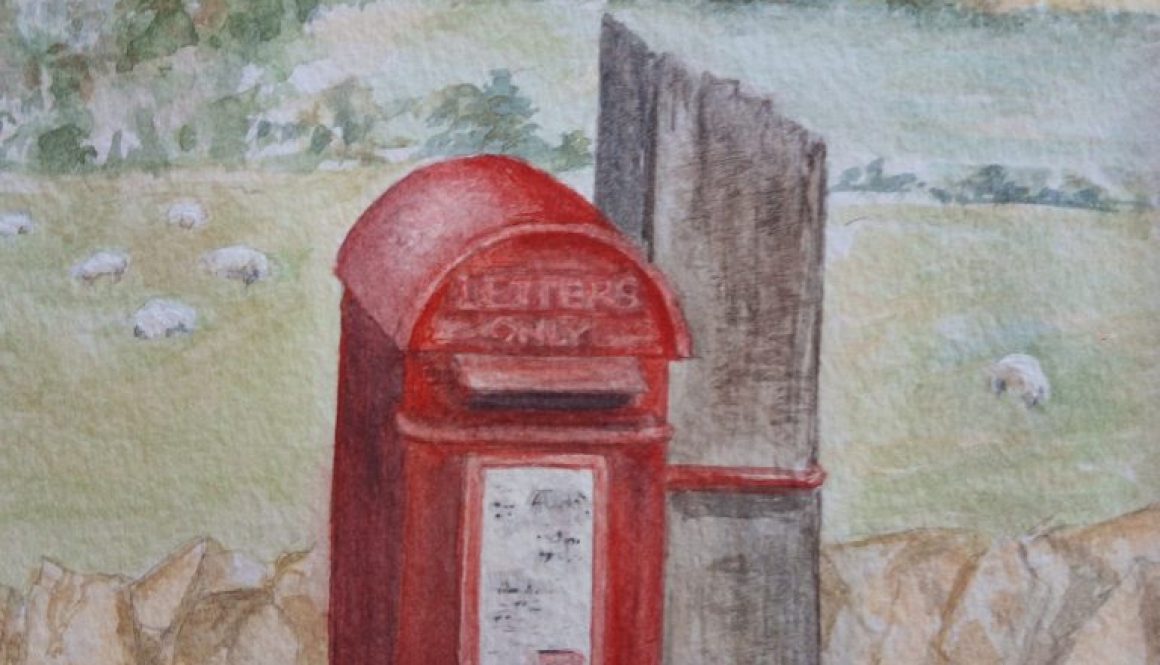
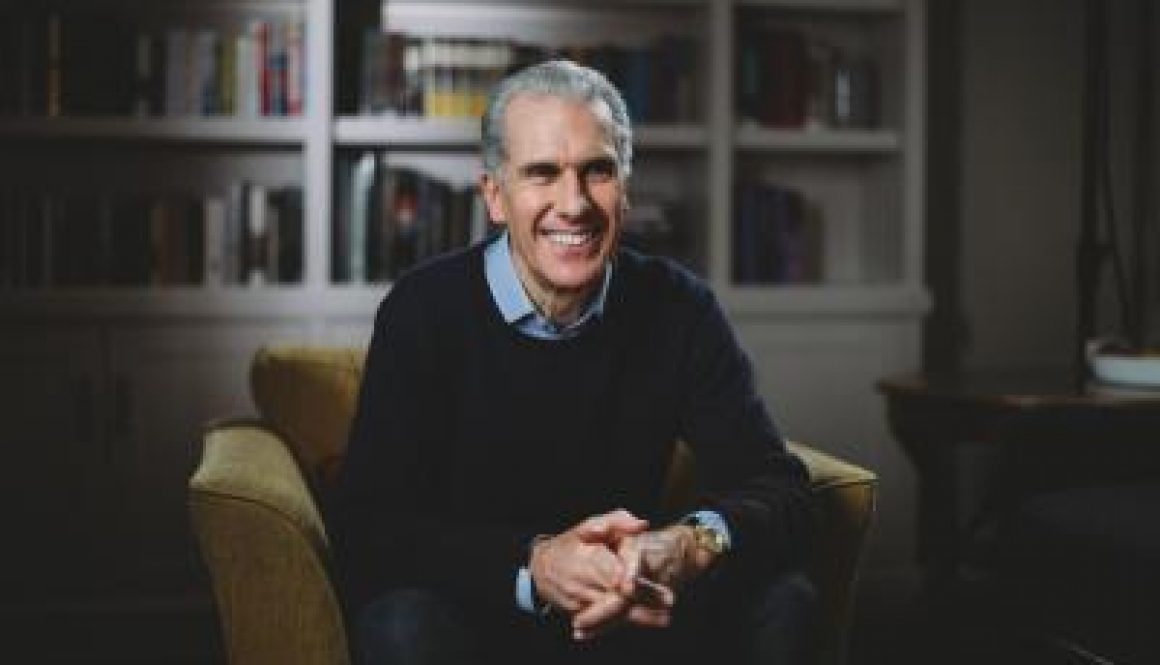
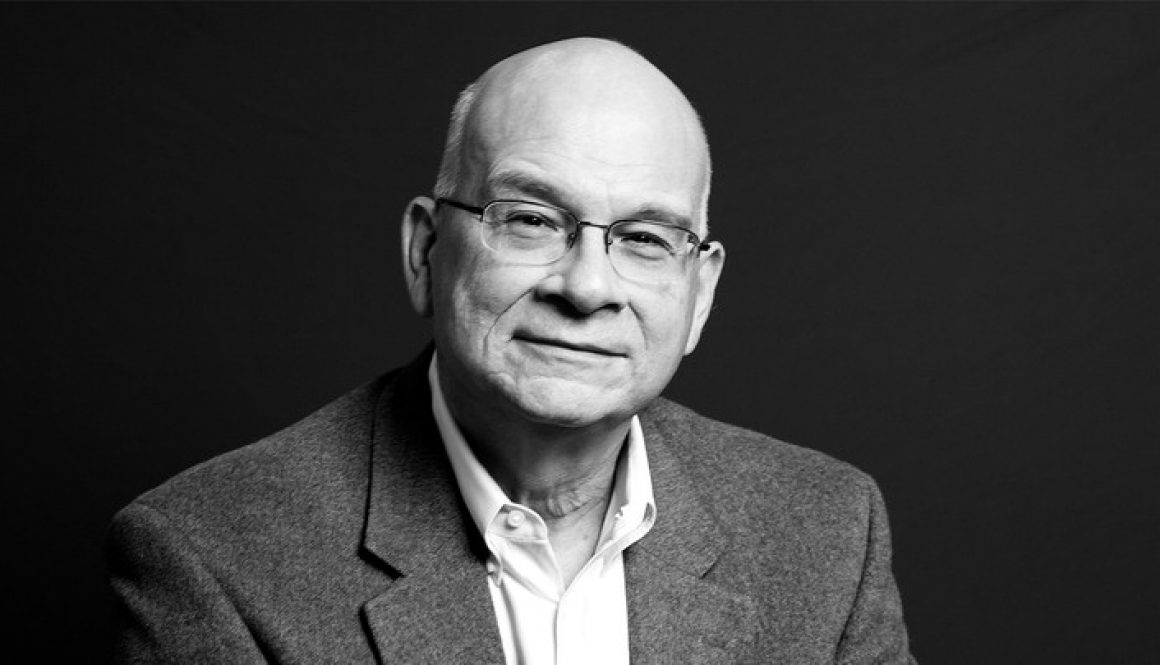



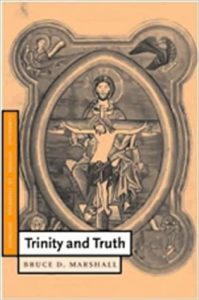 Bruce Marshall: Trinity and Truth
Bruce Marshall: Trinity and Truth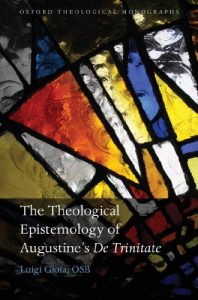 Luigi Gioia osb: the Theological Epistemology of St Augustine
Luigi Gioia osb: the Theological Epistemology of St Augustine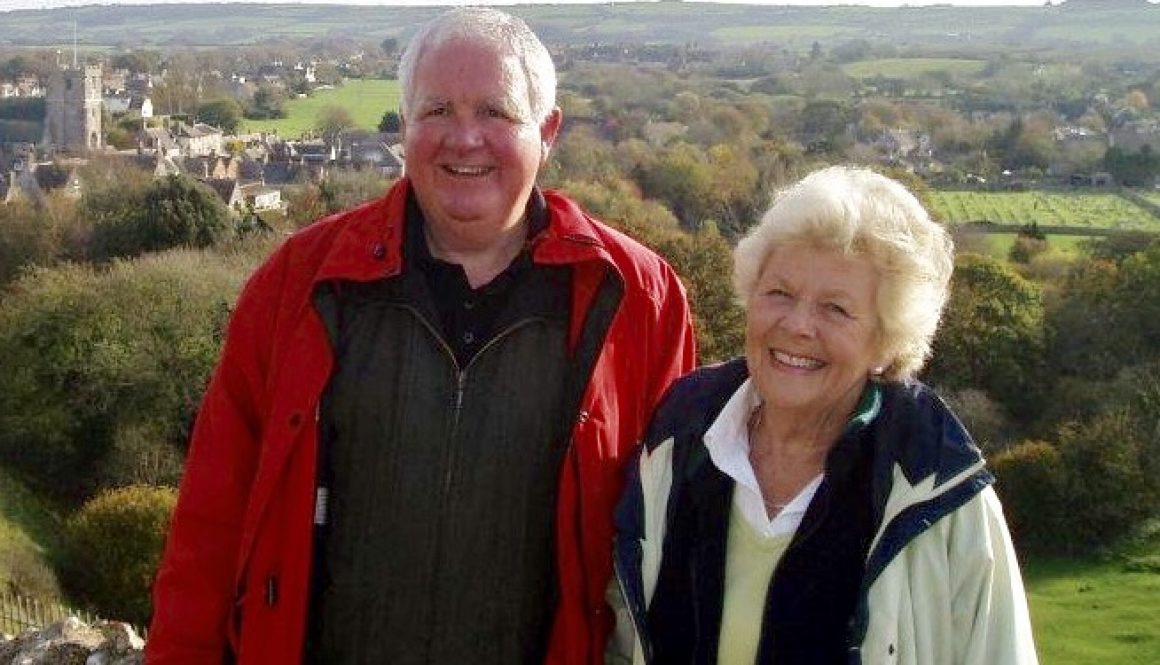
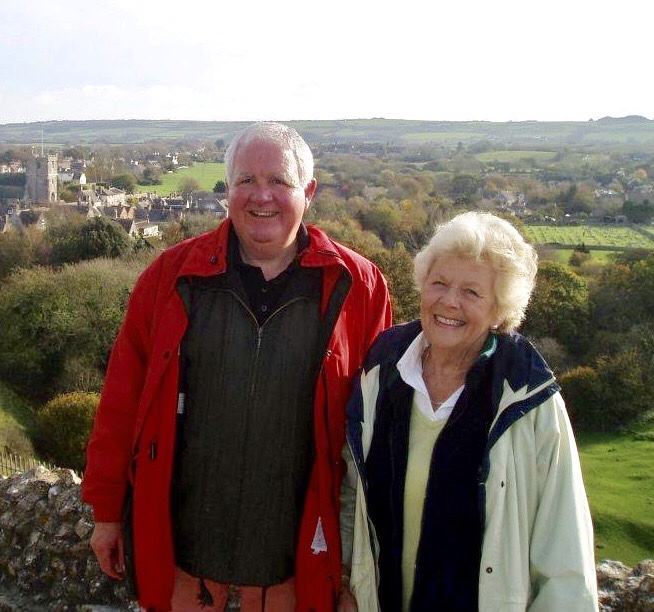
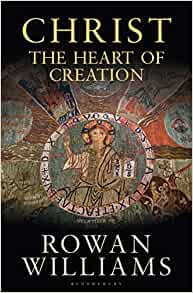 Rowan Williams: Jesus Christ, heart of creation
Rowan Williams: Jesus Christ, heart of creation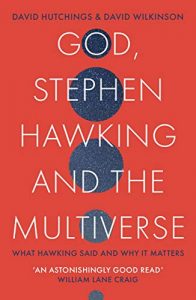 The origin of the universe
The origin of the universe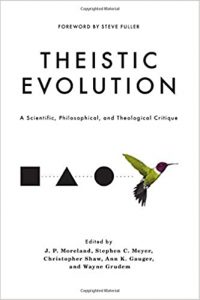 The origin of the life
The origin of the life Are we more than matter?
Are we more than matter?